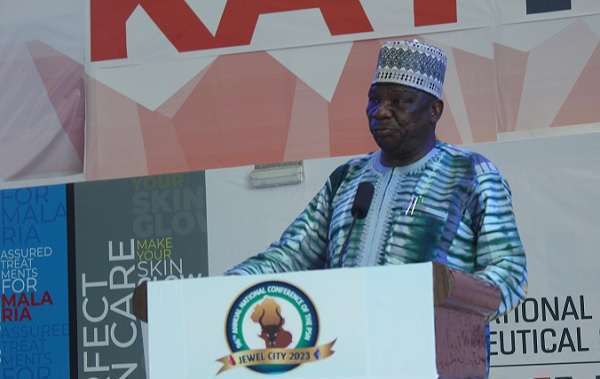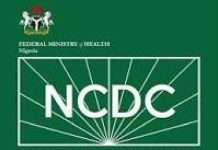
The Deputy Governor of Gombe State, Dr Manassah Daniel Jatau has called on pharmacists in the country to look inward, develop drugs locally, and work professionally with other healthcare workers to achieve Universal Health Coverage (UHC) in Nigeria, where every citizen will have access to quality healthcare delivery.
The deputy governor made the call on Tuesday in his keynote address at the ongoing 96th Annual National Conference of the Pharmaceutical Society of Nigeria (PSN). The theme of the conference is Pharmacy practice: A pivot to Universal Health Coverage in Nigeria.
Dr Jatau who was the keynote speaker at the event stated that pharmacy practice is very important in the attainment of UHC in Nigeria and if this must be achieved, there is an urgent need to spur reforms that will ensure and speed up genuine support for local production of pharmaceuticals. He specifically charged the Nigeria Academy of Pharmacy (NAPharm) to be at the forefront of the movement towards the reforms.
The keynote speaker also stated that if Nigeria must achieve UHC, there is an urgent need to produce drugs locally to prevent a potential pandemic, even as he charged stakeholders in the pharmaceutical industry to rise and fill up the lacuna created by the exit of some drug manufacturing companies.
While examining the importance of health as expounded by an anatomist -Herophilus (335 BC – 280 BC), the keynote speaker pointed out that health should and must be the first goal of human beings, saying “when health is absent, wisdom can’t reveal itself, art cannot manifest, strength cannot fight, wealth becomes useless and intelligence cannot be applied”.

He pointed out that sick people are unable to perform the roles expected of them in society, noting that the non-performance of roles by sick people brings about disruption in the functioning of society, hence pharmacists, medical personnel, medical sociologists, clinical psychologists, and other healthcare workers are expected to put heads together to take care of the sick to reduce malfunctioning of the society.
He stated that Nigeria must act now to avoid unfortunate experiences where health for all by the year 2000 eventually became a mirage in the country. He said “It was not surprising that the Millennium Development Goals came and went unattained and the same results seem to await Sustainable Development Goals, since it is now obvious that the nation Nigeria is racing on the same lane of disappointment in the race and pursuit of the Global Agenda for Development
He pointed out that there is no disease on earth that God has not provided a cure for one way or the other. He therefore charged pharmacists to go all out and identify the medicine that would cure all manner of diseases to enable all Nigerians to have access to quality healthcare.
“I want to challenge you to look inwards, consider local contents, partner and liaise with relevant stakeholders, and produce drugs in our environment, using plants, animals, and birds, which we must accept that, Nigeria has been blessed with, in abundance. You are to research, test-run, and eventually produce medicines for use in our environment. We are encouraged by the position of criminologists to the effect that “somewhere-somehow lies the solution to every problem”. Similarly, one of the popular religious books teaches us that “there is no diseases that God sent to mankind, that He has not created the medicine/remedy for it” much earlier.
“I appeal to you pharmacists and your profession to please do all you can and “dip your buckets where you are” to discover and unveil the already existing remedies. It may interest you to know that in line with Functionalist theory, virtually everything that nature provided is a medicine of one disease or the other, just waiting for human beings to discover and pinpoint the disease that it cures”.
He also expressed optimism that if the “System Theory” which does not underrate the contributions of any actor or stakeholder in the successful accomplishment of a task, is applied, Nigeria’s story will change toward progress.
“In essence, if we close ranks, and break all barriers and boundaries between the modern pharmacists, traditional medicine practitioners, and even the patients, I am convinced that we can come up with efficacious drugs that will be used in place of the imported medicines. This will of course reduce to the barest minimum the inherent tendency to seek medical treatment abroad, leading to the drain of resources by way of medical tourism”, Dr Jatau said.
The keynote speaker said local production of drugs will not only enhance the attainment of UHC but will also reduce the importation of unnecessary medicines, provide the exportation of manufactured traditional medicine, provide jobs, help to build capacity in all areas of traditional medicine and also help in the fight against deforestation which is a move to address climate change.










